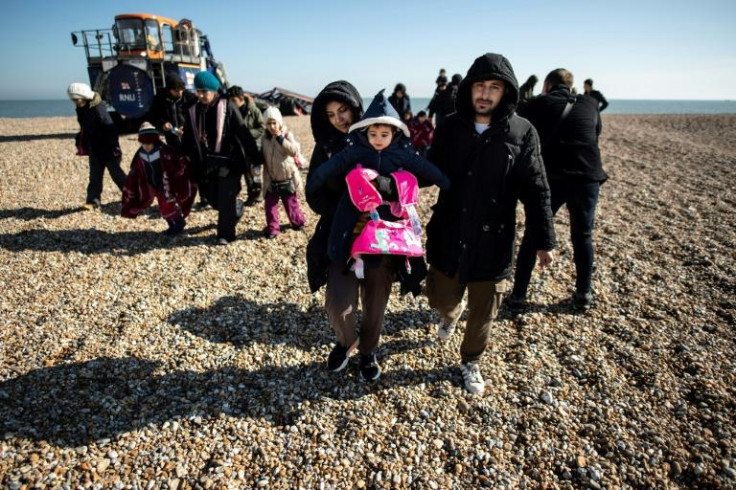New Migration Requirements Are Pushing Women And Small Businesses Out Of The UK
Women, children and small businesses are bearing the brunt of the government's new anti-immigration strategies, according to experts.

On Monday this week, Prime Minister Rishi Sunak announced that the Conservative Party have developed new policies that will see the number of people arriving in the UK for long-term residency decrease by 300,000 a year.
As the government reveals more of its plans to halt immigration to the UK, a group of migration and trade group experts have found that smaller and regional businesses will bear the brunt of the new strategies.
This news comes after official net data showed that the net migration figures hit a record-breaking 745,000 in 2022.
As part of Sunak's relentless 'stop the boats' campaign, the minimum annual salary that British citizens and migrants must earn, in order to have their families join them in the UK, was upped from £18,600 to a huge £38,700.
The Founder of Free Movement, a legal immigration website, Colin Yeo, noted that the dramatic increase in the minimum salary standards for migrants would "destroy many lives".
On X, formerly Twitter, Yeo wrote: "It's particularly punishing to those outside London, minority communities and British citizens returning from abroad."
Although the earning threshold has been more than doubled, unpublished documents from the Home Office show that the increase will make little difference to the overall net migration figures.
The Home Office documents estimate that the new strategy will reduce the number of people travelling to the UK "in the low tens of thousands".
The experts, who warned of the disproportionate harm that the increase would bring to women and children, also noted that a staggering 75 per cent of women in UK employment earned less than the new £38,700 minimum salary.
As the gender pay gap continues on a global scale, mothers and children who wish to return to the UK after moving abroad for a short period of time will find themselves in an incredibly tough position – according to migration and trade group experts.
The Director of Oxford University's Migration Observatory Institute, Madeleine Sumption, recognised that women will be most affected by the new boundaries, considering they are more than 20 per cent more likely to work part-time roles.
Sumption went on to criticise the Home Office for refusing to consider the prospective earnings of a non-UK citizen who is not yet in the country.
The Head of Immigration at the law firm Bates Wells, Chetal Patel, also recognised: "Small and medium-sized enterprises will undoubtedly be priced out of the market – they simply won't be able to sponsor workers in critical roles."
With regard to the hospitality sector struggling with a current "staffing crisis", the Chief Executive of UK Hospitality, Kate Nicholls, said that out of the 8,500 hospitality workers who obtained a visa last year, more than 8,050 of them would not be able to get a visa under the government's new regulations.
Nicholls went on to note that amongst the hospitality workers who have been granted visas, are "talented chefs and managers of the future".
"These changes will further shrink the talent pool that the entire economy will be recruiting from, and only worsen the shortages hospitality businesses are facing," she added.
UK Hospitality also reported that in the fight to save the hospitality industry from staff shortages, the government have also had discussions surrounding the hospitality sector being added to the shortage occupation list.
As part of the Skilled Workers Visa, those who want to reside in the UK are able to apply for roles in understaffed sectors, including care workers, architects, veterinarians, engineers and scientists.
Researchers have also highlighted that considering women account for more than 50 per cent of hospitality employees, earning an average annual salary of £25,000, both females and the hospitality industry will face the brunt of the new UK migration requirements.
© Copyright IBTimes 2025. All rights reserved.






















